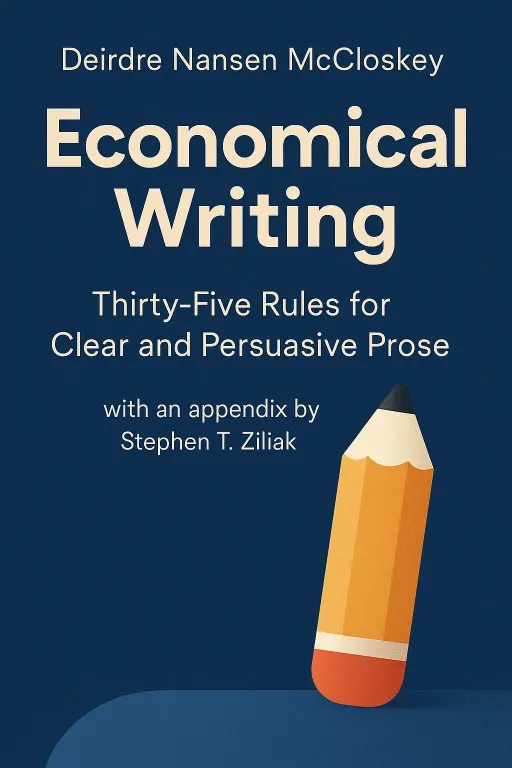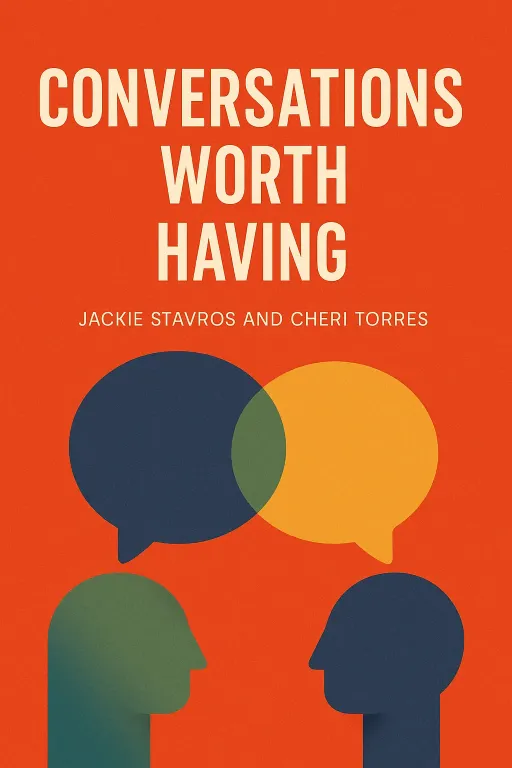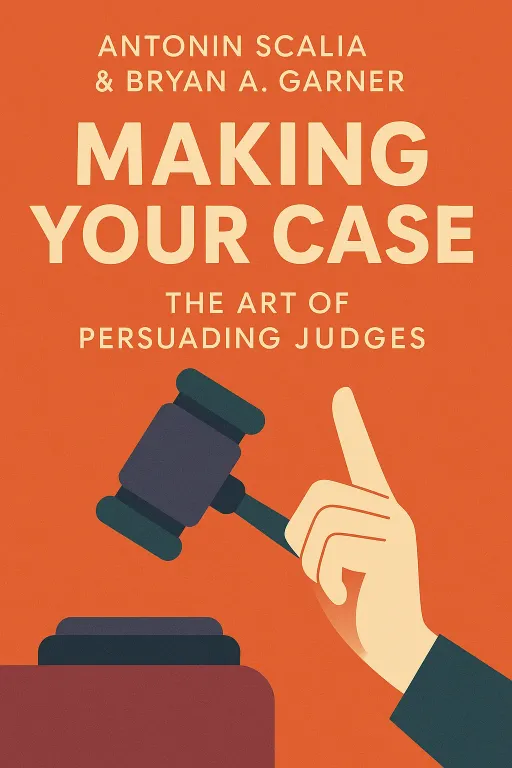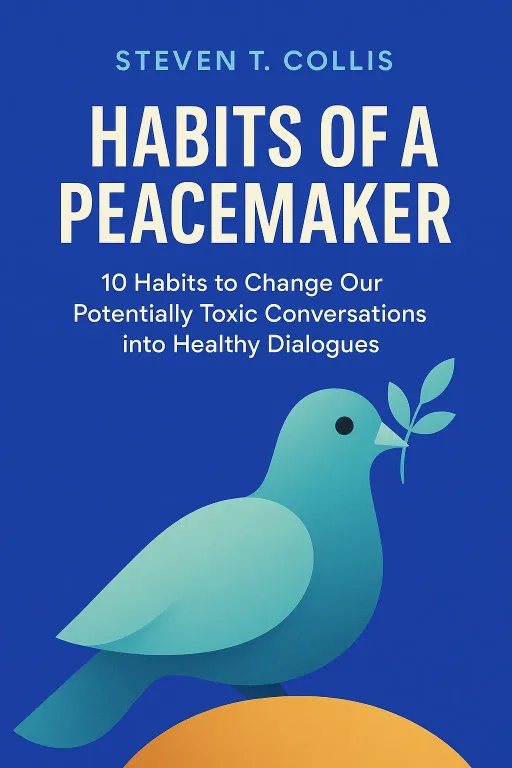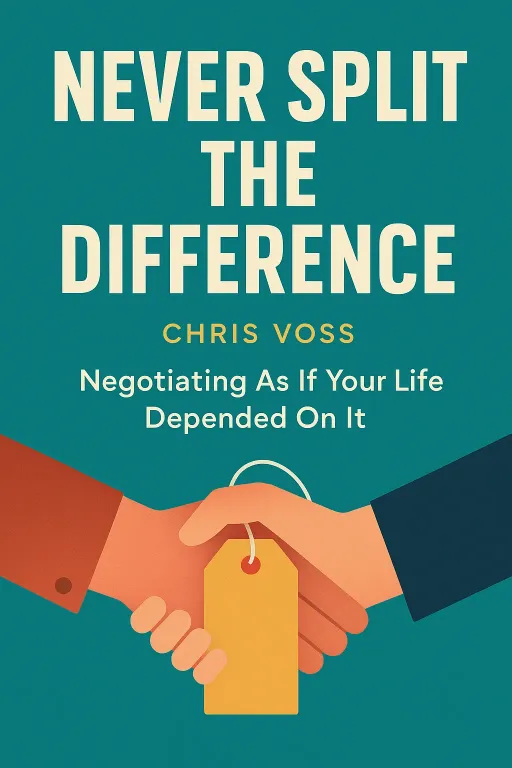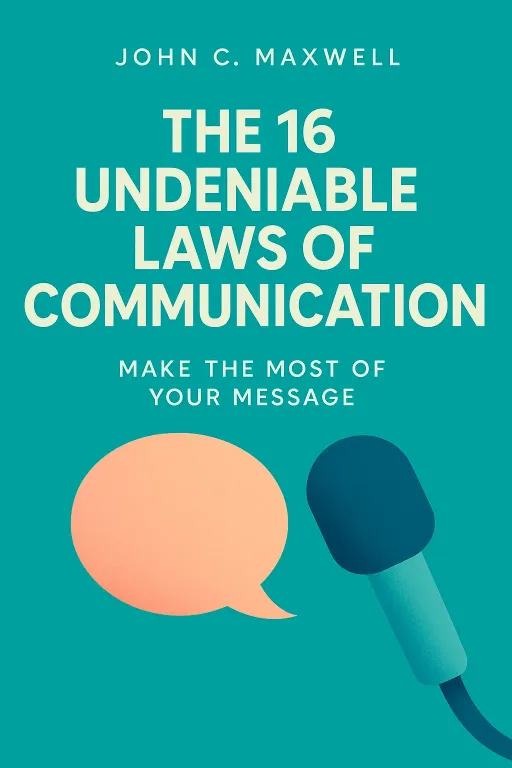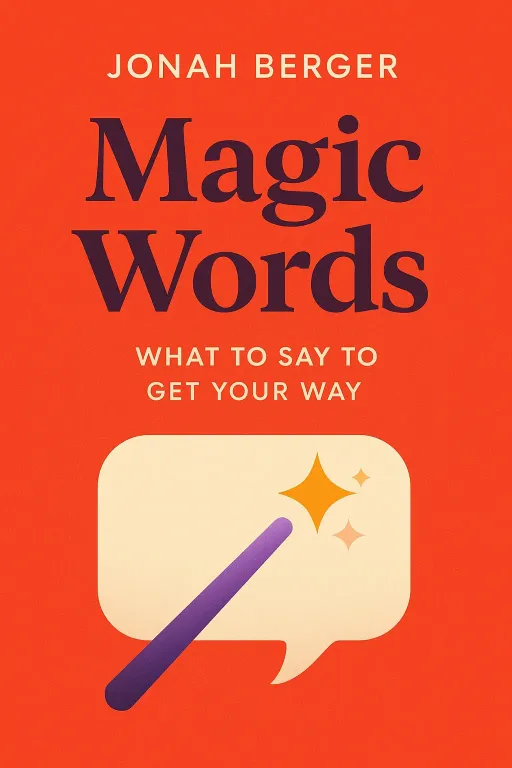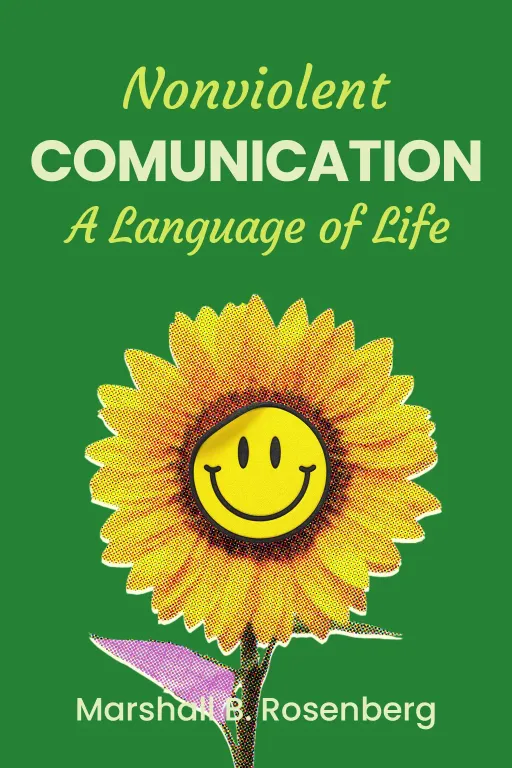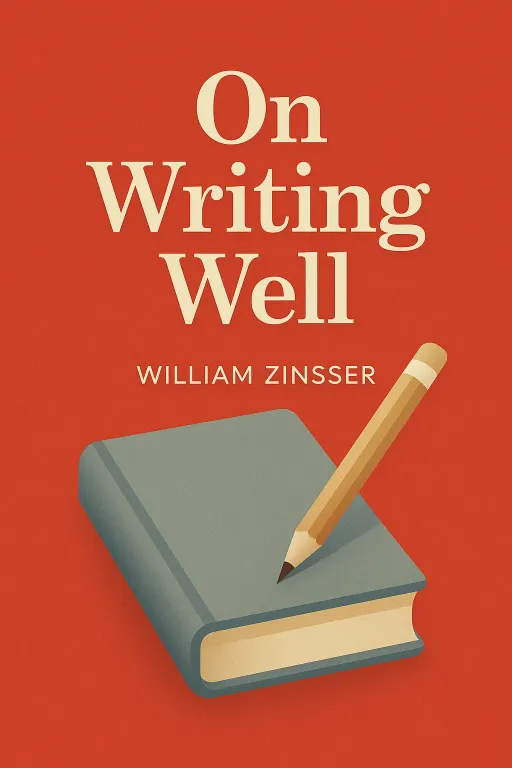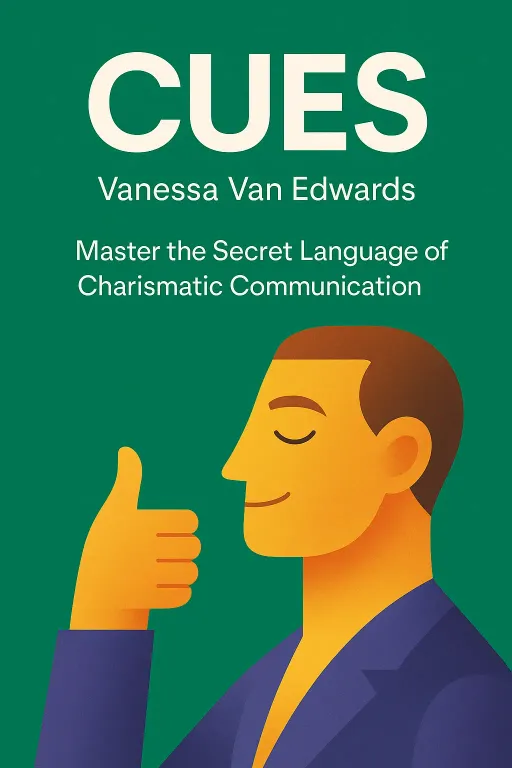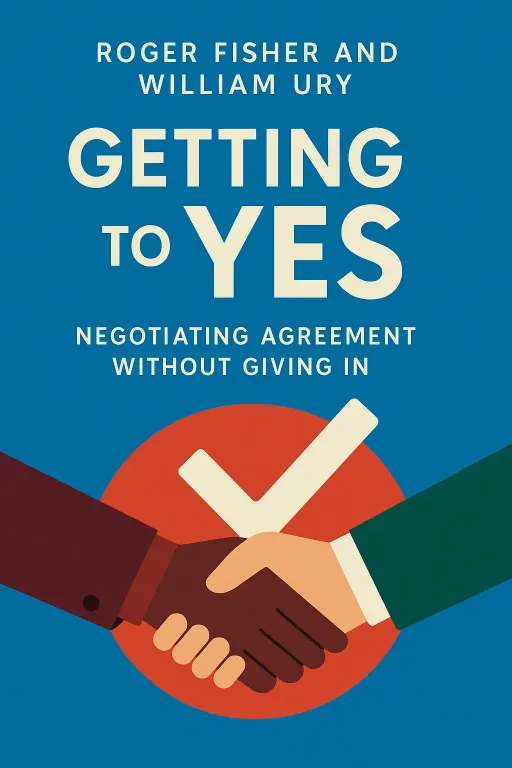
The Orange & The Nuke
12 minNegotiating an agreement without giving in
Golden Hook & Introduction
SECTION
Michelle: Mark, quick, when I say the word 'negotiation,' what’s the first image that pops into your head? Mark: Easy. A sweaty, high-stakes arm-wrestling match where the loser has to buy the other person a slightly-too-expensive lunch. And I'm usually the one buying lunch. Michelle: That is the perfect image. The feeling of strain, the win-lose dynamic, the inevitable regret. It’s a feeling so many of us have, whether we're haggling for a car or just deciding where to go for dinner. Mark: Exactly! It feels like a battle of wills, and someone has to give in. It’s exhausting. Michelle: Well, that exact feeling is what we're dissecting today. We're diving into a book that fundamentally changed how people think about this process. It’s Getting to YES: Negotiating Agreement Without Giving In, written by Roger Fisher, William Ury, and Bruce Patton. Mark: That’s a legendary title. I feel like I’ve seen it on every manager’s bookshelf for decades. Michelle: It is. And what’s fascinating is where it came from. This wasn't just an academic exercise. It grew out of the Harvard Negotiation Project, which was founded right at the tail end of the Cold War, in the late 70s and early 80s. Mark: Ah, the ultimate high-stakes arm-wrestling match. Michelle: Precisely. The authors saw a world locked in zero-sum thinking, where every negotiation, from international treaties to business deals, was about one side winning and the other losing. They were convinced there had to be a better, more intelligent way to deal with differences. Mark: So they were trying to find a way to get what you want without the metaphorical arm-wrestling and the expensive lunch afterwards. I'm already in. Where do we start? Michelle: We start by putting a name to that arm-wrestling match. The book calls it "Positional Bargaining," and it’s the default trap we all fall into.
The Tyranny of Positions: Why We All Negotiate Badly
SECTION
Mark: Positional Bargaining. It sounds so formal, but I have a feeling it’s something I do every single day. Michelle: You absolutely do. It’s the simplest form of negotiation. You decide what you want, you state your position, and then you argue for it, maybe giving up a little ground here and there to reach a compromise. The book uses this fantastic, simple example: haggling in a secondhand store over a brass dish. Mark: Oh, I can picture this. The dusty shop, the shrewd owner… Michelle: Exactly. The shopkeeper starts high, let's say $75. The customer starts low, maybe $15. The shopkeeper scoffs, "Be serious!" and comes down to $60. The customer inches up to $20. It becomes this slow, painful dance of tiny concessions. Mark: And your ego gets all tangled up in it. It stops being about the dish and starts being about not wanting to feel like you got taken for a ride. You become more and more committed to your number. Michelle: That’s the key insight. The quote from the book is, "The more you clarify your position and defend it against attack, the more committed you become to it." Your ego merges with your position. You’re not just defending a price; you’re defending your own judgment and self-worth. Mark: That is painfully familiar. It’s a contest of stubbornness. But hold on, does this really matter for anything more than a brass dish? Isn't this just small-stakes stuff? Michelle: That’s the scary part. This same dynamic plays out on the world stage, with catastrophic consequences. The book gives the chilling example of the nuclear test ban talks between the United States and the Soviet Union under President Kennedy. Mark: Okay, the stakes just went up a little bit from a brass dish. Michelle: Just a little. Both sides actually wanted a treaty. Their shared interest was preventing nuclear war. But the negotiation got stuck on one single position: the number of on-site inspections each country would allow per year to check for secret tests. Mark: Let me guess, they picked numbers and dug in. Michelle: They did. The Soviets said, "We will accept three inspections." The United States said, "We will accept no less than ten." And for years, they argued over these two numbers. Ten. Three. Ten. Three. They never really explored the interest behind the number. Mark: What was the interest? Michelle: For the U.S., it was about verification and trust. For the Soviets, it was about sovereignty and not wanting spies roaming their territory. But instead of trying to solve those underlying problems—like, could they use technology? Could they have joint inspection teams?—they just fixated on their positions. The talks collapsed over that single digit. Mark: Wow. So the same flawed logic that makes you overpay for a brass dish could have ended the world. That’s… sobering. Michelle: It is. And it reveals the three major flaws of positional bargaining. First, it produces unwise agreements, because people are just splitting the difference instead of finding the best solution. Second, it's incredibly inefficient—all that posturing and haggling takes forever. And third, it endangers the relationship. It turns people who should be partners in solving a problem into adversaries. Mark: But isn't that just how power works? The stronger side, or the more stubborn side, gets to dictate the terms. That’s reality. Michelle: The authors have a great response to that. They say any method of negotiation should be judged by three criteria: Does it produce a wise agreement? Is it efficient? And does it improve, or at least not damage, the relationship? Positional bargaining fails on all three counts, almost every time. It’s a fundamentally broken system. Mark: Okay, you've convinced me. The arm-wrestling match is a disaster waiting to happen. So what's the alternative? If we're not supposed to do that, what are we supposed to do? Is there a secret playbook? Michelle: There is. And it’s a beautiful, elegant alternative. The book calls it "Principled Negotiation." And the best way to understand it is with another simple story.
The Third Way: Unlocking Mutual Gain with Principled Negotiation
SECTION
Mark: I'm ready. Lay the story on me. I need some hope after that nuclear apocalypse scenario. Michelle: This one is much more hopeful. It’s the story of two sisters who are arguing over an orange. Mark: An orange. Okay, the stakes are back down. I like it. Michelle: Both sisters want the orange, and they argue back and forth. Finally, they do what most of us would do: they compromise. They take a knife and cut the orange in half. A classic positional solution. Mark: Seems fair. They each get half. End of story. Michelle: But here's what happens next. The first sister takes her half, squeezes the juice into a glass, drinks it, and throws the peel in the trash. The second sister takes her half, carefully grates the peel to use in a cake she’s baking, and throws the fruit in the trash. Mark: Oh, no. Hold on. One only wanted the juice, and the other only wanted the peel. Michelle: Exactly. They compromised on their positions—"I want the orange"—and in doing so, they both ended up with a worse outcome. If they had just asked one simple question, they could have unlocked a perfect solution. Mark: The question being, "Why do you want the orange?" Michelle: That's it. That's the heart of the entire book. By asking "why," they would have uncovered their underlying interests. The first sister's interest was quenching her thirst; the second's was baking a cake. Their interests weren't in conflict at all. One could have had all the juice, and the other could have had all the peel. A 100% win for both. Mark: That is such a simple, powerful idea. It reframes the whole thing. You stop fighting over the thing itself and start talking about the need behind it. Michelle: And that story is the perfect gateway to the four core principles of this new method. The first one is the one we just saw in action: Focus on interests, not positions. Always ask why. Mark: Okay, that one makes perfect sense now. What’s the second? Michelle: The second is Separate the people from the problem. This is a tough one for a lot of people. The idea is that you have to be able to attack the problem without attacking the person you're negotiating with. Be hard on the merits, but soft on the people. Mark: That sounds great in a textbook, but come on. If someone is being unreasonable or acting like a jerk, they are the problem, aren't they? How do you realistically separate that? Michelle: You do it by addressing the "people problems"—emotions, misperceptions, communication issues—directly and separately. Acknowledge their feelings. Say, "It sounds like you're feeling frustrated by this," or "Help me understand why you see it that way." You treat the relationship as a separate negotiation. You can be partners in solving the problem, even if you don't like each other. Mark: So it’s like putting the substantive issue on one side of the table and the emotional baggage on the other, and dealing with them one at a time. Okay, I can see that. What's principle number three? Michelle: Invent options for mutual gain. This is about brainstorming. Before you start deciding what to do, you and the other side should just throw a bunch of ideas on the table. In the orange story, the options were "split it," "one gets it," or "one gets the juice, one gets the peel." The more options you generate, the more likely you are to find a creative, win-win solution. Don't just look for one right answer. Mark: It’s like moving from a narrow path to an open field of possibilities. I like that. And the last one? Michelle: Insist on using objective criteria. This is the antidote to the battle of wills. Instead of arguing about what you or they are willing to accept, you agree on a fair, independent standard. If you're selling a house, you don't just argue about price; you agree to look at what similar houses in the neighborhood have sold for. If you're dividing assets, you might bring in an independent appraiser. Mark: So you're grounding the decision in reality, not just in who can be more stubborn. It takes the personal pressure off. Michelle: Exactly. It allows you to say, "Look, I'm not trying to rip you off, and I don't think you are either. Let's figure out what a fair standard would be here." It transforms the conversation from "me versus you" to "us versus the problem."
Synthesis & Takeaways
SECTION
Mark: So, if I'm putting this all together, it’s a complete shift in mindset. It’s not about being 'nice' or being 'tough.' It's about being smart. It’s about shifting from being adversaries sitting across a table, glaring at each other, to being partners sitting side-by-side, looking at the same problem together. Michelle: That is the perfect summary. It's a method for collaborative problem-solving. And it’s why the book has had such a lasting impact. It gave people a language and a framework for a better way to disagree. Mark: But I have to ask the question that I know listeners are thinking. This all sounds wonderful in a library with two sisters and an orange. But what about the real world, where things are messy and people don't play fair? Critics of the book have sometimes called it idealistic or naive. Does it really work when the other side is playing dirty or has all the power? Michelle: That is the most common and most important question. And the authors have a brilliant, incredibly practical answer for it. It's probably the book's most famous and powerful concept: the BATNA. Mark: BATNA? Sounds like a superhero's gadget. Michelle: It might as well be. It stands for Best Alternative To a Negotiated Agreement. It’s the single greatest source of power in any negotiation. Mark: Okay, break that down for me. What does it mean? Michelle: It means that before you even walk into a negotiation, you need to know exactly what you'll do if you don't reach an agreement. What is your best walk-away option? If you're negotiating for a job offer, your BATNA might be your current job, or another offer you have. If you're negotiating with a contractor, your BATNA might be hiring a different contractor. Mark: Ah, I see. So your power doesn't come from being stubborn or aggressive. It comes from how good your backup plan is. Michelle: Precisely. The better your BATNA, the more power you have. You can't be pressured into accepting a bad deal if you have a great alternative waiting for you. Developing your BATNA is your shield against a more powerful opponent. It protects you from both accepting terms that are too unfavorable and from rejecting terms it would be in your interest to accept. It's the ultimate reality check. Mark: That single idea makes the whole system feel less idealistic and much more grounded in the real world of power dynamics. It's not just about finding a win-win; it's about knowing when to walk away and having the confidence to do it. Michelle: It is. And it brings the whole philosophy full circle. Principled negotiation isn't about giving in. The subtitle of the book is "Negotiating Agreement Without Giving In." It’s about being principled, creative, and prepared. Mark: So the next time I feel that arm-wrestling match starting, that tug-of-war over some position, the real question to ask myself isn't 'How can I win this?' Michelle: The real question is, 'What do we both actually need?' And 'What's my BATNA?' The answers to those two questions might just change everything. Mark: A powerful thought to end on. It feels like we've been given a new lens to see every disagreement in our lives. Michelle: This is Aibrary, signing off.
